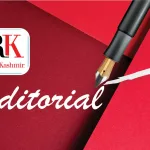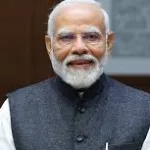As the world observes World Breastfeeding Week from 1-7 August, there is a debate over why some mothers avoid breastfeeding their newborn babies and prefer formula milk.
Breastfeeding is one of the most effective ways to ensure child health and survival. However, contrary to World Health Organization (WHO) recommendations, fewer than half of infants under 6 months old are exclusively breastfed.
In the Kashmir context, doctors say that the prevalence of exclusive breastfeeding (EBF) is less among mothers in Kashmir revealing that formula feeding is a major public health problem.
Senior paediatrician department of paediatrics, GMC Srinagar, Dr Suhail Naik, said the fundamental concept in young children rearing is still nurturing the child with nature.
He said human milk is only accepted to feed the growing infant, as it is nutritious, balanced and contains so many anti-infective and immunity-boosting molecules.
“Breast milk changes its composition and taste feed to feed and that is not possible for artificial feeds. Children who are exclusively breastfed have less frequent and less severe respiratory tract systems, gastrointestinal and skin infections,” he said.
Naik said their (breast-fed babies) frequency of hospitalization, mortality and morbidity is less than formula-fed infants and the difference is statistically significant.
He said the brain development in breastfeed children is much higher than formula-fed infants and this brain development in formative years of age helps them later in every aspect of life to become successful individuals and nation builders.
“Breast milk is not only fed, but is a medium through which emotions, memory, attitude, behaviour etc. are transferred from mother to infant. Hispanic mothers don’t breastfeed their baby at the time of anger, as it can be transferred to the baby,” the paediatrician said.
Naik who has researched on breastfeeding said it is unfortunate that mothers in Kashmir prefer formula milk for their babies and the rate of exclusive breastfeeding is just around fifty percent.
“There are many reasons like poor knowledge, Lower Segment Caesarean Section (LSCS), working mothers, family pressure and market pressure which encourages formula feeding but the primary two reasons for declining frequency of breastfeeding are LSCS and poor antenatal counselling about advantages and breastfeeding techniques,” he said.
He said it is high time that health care workers should act as counsellors of exclusive breastfeeding and no opportunity should be missed to make a mother aware about the advantages of exclusive breastfeeding.
“Further, J&KBOSE should incorporate advantages of exclusive breastfeeding in curriculum from higher secondary and they should have one question on it in final exams,” Naik said.
He said the government should take serious note on marketing and promotion of formula milk and Infant Milk Substitute Act (IMS Act) should be strictly implemented in J&K.
Notably, a study conducted by the department of pediatrics, GMC Srinagar titled ‘practice of exclusive breastfeeding: its socio-demographic determinants’ also reveals that the prevalence of exclusive breastfeeding is less among mothers in Kashmir.
“The prevalence of EBF (36%) in Kashmir is lower than the national figure (64%),” read the research published in the International Journal of Contemporary Pediatrics.
The study included 600 mothers, having infants in the age group of 0-6 months. Variables recorded were modes of feeding, demographics, socioeconomic status, literacy level, mode of delivery and place of delivery.
“There were 53% male and 47% female infants. Among them, 41.7% babies were first born and 58.3% second in birth order. 99.5% of mothers were more than 18 years of age,” it said.
The study notes that few mothers had no formal education 3.3%, while 14.7% had primary education and 82% had secondary level education.
On the employment status, as per the study, about 78.3% of the mothers were housewives and only 21.7 % were working outside the home.
“Almost all the mothers were Muslims (96.0%). Most of the mothers resided in the urban areas (81.2%), while the remaining hailed from rural areas,” it said.
“There were 15.5% nuclear families and 84.5% were joint families. 25% families were below the poverty line, 65% middle class and 10% upper class,” it said.
It revealed that earlier breastfeeding education and its importance was received by 30% of mothers and only 37% of them had more than 4 antenatal visits. “There were 92% institutional deliveries and 64.5% were born by LSCS,” it said
Exclusive breastfeeding was significantly high in babies born by normal delivery, more than 3 antenatal visits, mothers knowing the advantages of breastfeeding and higher parental education. “Meanwhile, the caesarean section rate in the present study is 64.5 %, well above the 5-15 % of deliveries suggested by the WHO in 2009,” the study said.
The study was conducted by three paediatricians including Dr Suhail Naik, Dr Mohammad Irshad, Dr Ghulam Rasool and Dr Wasim A. Rafiq and aimed to define significance of demographic, socioeconomic, parental education, employment etc.
“These findings indicate that the breastfeeding support provided by health services is weak and immediate measures to promote exclusive breastfeeding are of utmost importance to decrease the infant mortality rate to a targeted single digit,” they said.
The research notes that emergency and planned C-sections adversely affect breastfeeding initiation, milk supply and infant breastfeeding receptivity compared to vaginal deliveries.
“Therefore, it is imperative to address the overuse and misuse of LSCSs, which in the long term will decrease both maternity and infant mortality rates.”
“The situation is grim as increasing bottle-feeding is associated with high risk of infections, malnutrition and poor brain development. Exclusive breastfeeding must be incorporated in the school curriculum,” he said.
He said breastfeeding promotion programs in communities, Aanganwadi centres, schools, hospitals is must and attention should be given to women who aren’t practicing EBF.
The study said emergency and planned C-sections adversely affect breastfeeding initiation, milk supply and infant breastfeeding receptivity compared to vaginal deliveries.
The paediatrician said after six months of age, babies should be introduced to semi-solid, soft food but breastfeeding should continue for up to two years and beyond because it is an important source of nutrition, energy and protection from illness.
“The baby should be fed small amounts of food that steadily increase in variety and quantity as he or she grows. During illness, children need additional fluids and encouragement to eat regular meals, and breastfeeding infants need to breastfeed more often,” he said.





